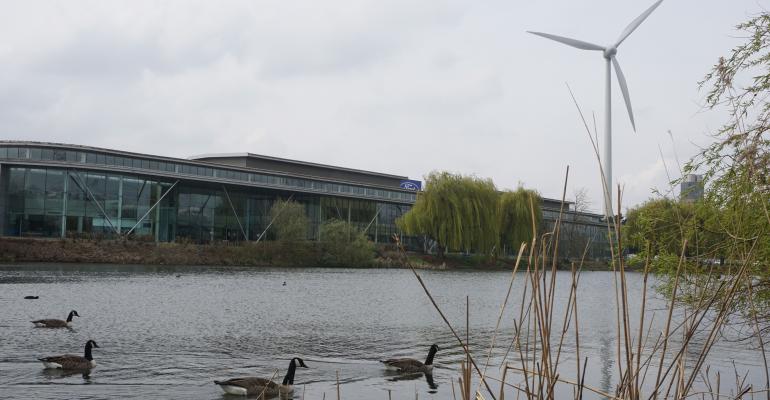Ford’s U.K. engine plant has become the unlikely home to more than 50 bird species.
The Dagenham Engine Plant, 15 miles (24 km) from central London, builds power systems for a range of Ford vehicles, while the birds nest in the surrounding haven for wildlife.
Senior site supervisor Tony Shade says plant employees help maintain and improve the surrounding habitat, keeping waterways clear, restocking fish supplies and planting more than 10,500 trees over the past 20 years.
“The wildlife habitat on the Dagenham estate covers a large part of the site, and its importance is recognized by employees and is really ingrained into the culture at the plant,” Shade says in a statement. “New drivers on site are warned to be aware of wildlife crossing the roads.”
The plant works with the Forestry Commission and London waterways charity Thames21.
The site includes the Breach, a natural lake formed when the River Thames burst its banks more than 300 years ago, and the River Beam.
As well as being one of the largest wader roost locations in London, the 620-acre (250-ha) area counts peregrine falcons, swans and Canada geese among its residents and visitors.
The U.K.’s fastest-declining mammal, the European water vole, has found safety at the site, along with the rare Adonis ladybird.
More than 37 million engines have been produced at the Dagenham plant since it opened in 1931, as well as 11 million cars. It now builds a range of technologically advanced diesel engines, including the 2.0L Ford EcoBlue engine on a state-of-the-art production line.
Ford’s 18th annual sustainability report says that among its zero-waste-to-landfill facilities, the Dagenham plant has reduced water and energy consumption per engine produced by more than 50% in the past year. That saves enough water to fill seven competition-size swimming pools, or give a lot of birds a safe haven.





